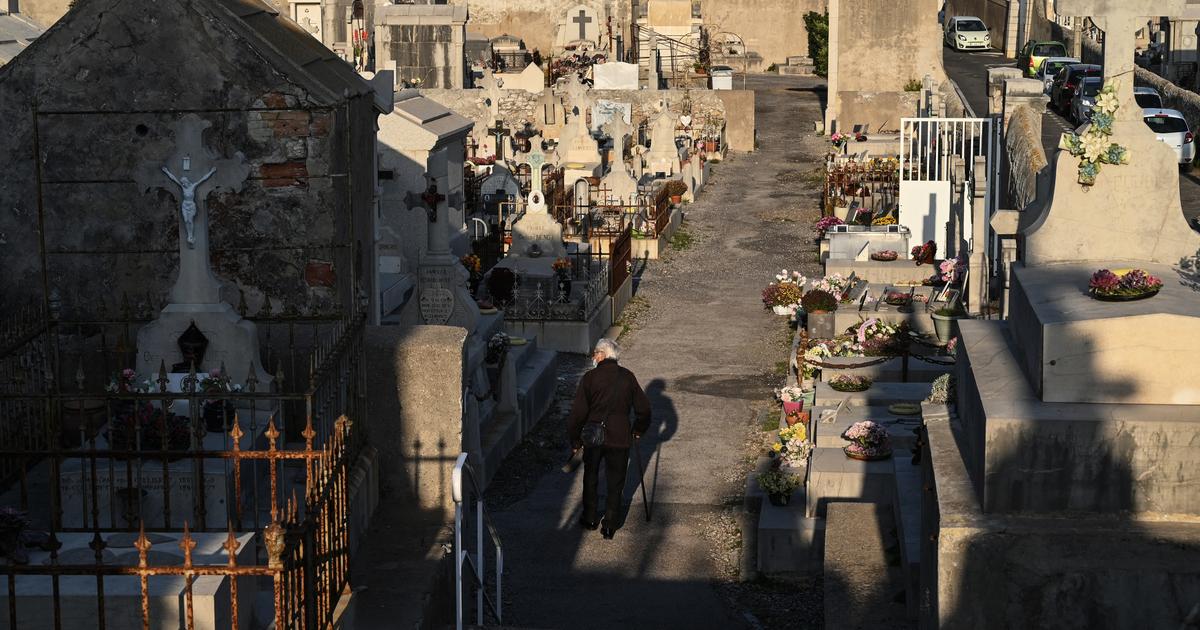Carlos, one of the young university students detained in Havana during the July 11 protests, says that they now have their grandmother at home "in
Good Bye Lenin
mode.
"
. When scenes of the incidents appear on TV and the newscast describes the protesters as criminals, mercenaries and "confused", he and his brother change the channel and divert the subject, in addition to having their friends and family warned that when the call by phone do not delve into the matter. Carlos was released on July 12 and she did not know of his arrest. Like the characters in Wolfang Becker's film, set in the days after the fall of the Berlin Wall, he and his brother try to hide reality from him and prevent him from worrying because he knows that they were both at the N 27 protests before the Ministry of Culture of Cuba demanding freedom of expression, and that they are not afraid to speak out. “My grandmother belongs to another generation. She goes through the same hardships as everyone else, but in a way she remains committed.We do not".
Another 20-year-old girl who works as a waitress in a private restaurant explains it graphically: "Our parents taught us to speak softly, but that's over now." He considers himself part of a generation "disbelieving, frustrated, hit by the crisis, that does not feel that he owes anything to the revolution", nor does he see that he can have a decent life in his country with the fruit of his work. “For me, the first thing is to hope to live better, especially economically. Politics comes later ... But here, nothing at all. I don't think things are going to be solved, so I plan to leave when I can, ”he says.
This is a widespread position among the young.
But there are many others.
"Cuban youth in the singular does not exist, you have to speak in the plural," says psychologist Ailynn Torres, who thinks that it would be "reductionist" to say that "the Cuban youth in full distance themselves completely from socialism as a political project, beyond what that they think of the Government ”.
He observes that the demonstrations had an intergenerational and socio-class component, although he considers that the role of young people was key in J 11, because in addition to “putting their bodies on the streets” they were decisive “amplifying those protests through social networks , the direct ones on the internet, and in the media ”.
Cubans participate in a protest outside the Cuban Capitol on July 11.
YAMIL LAGE / AFP
He thinks that in highly conflictive scenarios such as the current one, "political identities function as a glue" and, in that sense, the protests "were a kind of showcase".
“We have seen young detainees who define themselves as dissidents and opponents;
young detainees who define themselves as communists and socialists;
groups of young people who have positioned themselves attached to the call of the Government and who also qualify as socialists;
other groups that have made a critical accompaniment, but showing their opposition to the blockade and annexationism;
and young people who openly identify themselves as anti-communists, opposed to socialism ”.
Without forgetting, of course, the group (majority and silent) that did not participate in the demonstrations.
Join EL PAÍS now to follow all the news and read without limits
Subscribe here
More information
Protests in Cuba: things by name
Cubans in Spain: concern and hope in the face of protests on the island
But what do youth feel and think today, beyond the protests?
What is your level of commitment and your position in the face of change?
Are young people the key to evolution, or to fracture, in the future?
All these questions have come to the fore these days, and concern is not only evident in intellectual and academic circles, but also at political heights.
It is no coincidence that on July 26, the date of the assault on the Moncada barracks, the revolutionary event par excellence, the Cuban president, Miguel Díaz-Canel, instead of offering a solemn speech, appeared before the cameras surrounded by a group of boys making voluntary work.
One in three Cubans was born after the disappearance of the socialist camp. It has the crisis of the Special Period marked by fire in the occiput. “The younger sectors have no memory of the initial and most successful stages in social policy of the process. The revolutionary epic, the obvious transformations and the benefits of the first decades tell them nothing. They have known the last thirty years, with the consequences of poverty, a sustained increase in inequality, failed life projects and expectations due to the exodus at an ever younger age ”, says historian Alina López, general coordinator of the analysis portal
La Joven Cuba
.
It is one of the most interesting digital media right now.
From its pages a few months ago a harsh open letter was promoted to US President Joe Biden asking him to put an end once to the economic embargo, as the best way to contribute to a solution in Cuba, and in the same way they have openly criticized the Government for delay the structural economic changes that the country needs and reject dialogue with young people after protests by a group of artists on November 27.
Young people light the torches during the opening of the film festival in Gibara, east of the island, in July 2018. Eliana Aponte
“Young people need changes and they don't see that they are offered in their country.
In Cuba, the expression "generational dialogue" is abused.
It conceives young people as passive spectators who are tasked with safeguarding a state of affairs. Well, they have already made it very clear that they do not accept this subordinate position, ”says López, who has asked, actively and passively, to open inclusive spaces for political participation, or to abide by the consequences.
To talk about these issues and what happened on J 11, a group of university students, representatives of various sensitivities, agreed to meet in neutral territory, in a house facing the sea. At the beginning, everyone declares their love for Cuba and speaks with their hearts in hand, some against, others less and some in favor, but all prefer not to give their surnames or take photos, which is revealing. As soon as the conversation began, Juan, in the first year of a humanities degree, declares himself "
inside-centrist
."
In his opinion, there are two criteria to define the political position in Cuba today: the first is whether you consider yourself "outside" or "inside" the process. "That is, if you think that the revolution can be reformed from within and give rise to a true and democratic socialism, or those who feel outside and think that this is impossible, there are even those who believe that it is undesirable." The other criterion "is the willingness to listen to those who think differently and try to ensure that all or almost all can be part of the future project of the nation." This, he says, separates the political field between "extremists and tolerant (or centrists)."
So, there are four groups: “Inside-extremists (mainly the Government);
inside-centrists (for example, Silvio Rodríguez, Julio César Guanche, Ailynn Torres and other critical intellectuals, but committed to some extent);
outside-centrists (the members of 27-N, and intellectuals who want a representative democracy but their forms lead them to dialogue with other actors and to be against the blockade and other external interference);
and finally outside-extremists (the extreme right in Miami, groups that support the blockade and intervention) ”.
The analysis of this 19-year-old boy has an impact on his maturity: "The ideal would be an alliance between the centrists, but power is at the extremes."
Fidel Castro embraces the singer-songwriter Silvio Rodríguez after a concert in Havana in 2004.
Open the debate, the arguments are falling from both sides. The majority, even those who most defend the official position and attribute much of the current ills to the tightening of the US embargo, agree that the country needs urgent economic changes.
"If there are no real changes, which alleviate the lives of the people and generate hope, the young people will continue to march and the protests will reproduce," says one of the moderates, who wishes that "the Government would enlighten, react and initiate a transition real from above ”. "It is the only way", he believes, "because discontent and popular pressure is not enough to bring about the necessary changes if there is no political will in power." Julián jumps like a tiger: "Economic changes are not enough, we must democratize this country and open true spaces for participation, and they will never do that here."
The thing turns on, and the word that is repeated the most is "hope". "If there is no project for a better country, and the assurance that if you stay in Cuba you will have professional development and a decent standard of living, the situation will deteriorate more and more, we will continue without hope." The one who defends the system with the most conviction speaks and says that there is. “Changes are needed, it's true, but we also need to remove the blockade at once. And at times like these, when the stability of the country is at stake, centrism gives me hives: I do not agree with throwing everything away, we must defend what we have, "says the young man, who explains that his The father is the son of extremely poor peasants and what he was able to achieve is “thanks to this”.
Several young people sing during the peaceful protest in support of the evicted strikers, in front of the Ministry of Culture in Havana on November 28, 2020. Ernesto Mastrascusa / EFE
The only girl in the group comes down to earth in the voice of the only girl in the group, who clarifies that this meeting only represents different ways of thinking of a minority that can be considered privileged, that has access to the university and a certain horizon - "become professionals and, If this country doesn't fix itself, let's get out ”- but he says that in his neighborhood, in a suburb of Havana, there are no options. Neighbors her age, she says, only think of very specific things that affect them, “that the roof of the house is falling, that there is no food or medicine for their parents, that they do not have dollars to buy in the new stores, and suffering from unbearable queues and blackouts. As is obvious, in the most impoverished places, or in the countryside, young people are not in our discussion of whether the Government should open political spaces,but in solving their immediate needs, which are many ”.
Then several issues arise, and the analyzes (here is the summary) are all interesting:
- The generation of their parents and grandparents, even living poorly, has a certain "emotional attachment" and ties that make it difficult to break up.
Young people, no.
One says that on July 11 his mother, who thinks like him, did not let him go out.
- Parents have been changing.
Before they did not understand them.
Today, although they want to protect them, they are "proud" of them.
Someone brings up the song from the singer Daymé Arocena, 22, who in the heat of the events recorded a song called
Todo por ti
, very critical of the government.
She wrote on Facebook that her great pain was that her father did not understand her and fought with her.
The boys look for the answer of the father in the networks - the internet already works.
The man says: “My girl, I can only tell you that I am very proud of you and the courage with which you have always assumed all the challenges and projects that you have had to live.
I, like your father, will always support you and I am one of those who believe that it is you young people who are going to achieve change, because you have no commitment to the past and you have a duty to the future ”.
Cuban women dance to the rhythm of reggaetton at the Casa de la Música in Havana, a center where young people gather to enjoy music and friends.
February 28, 2013. Eliana Aponte
- There is consensus among them that if the US really wanted to help a non-traumatic evolution, it should "remove the blockade as soon as possible."
But, they say, as this is a variable that does not depend on Cuba, the authorities should focus on making the internal changes that they know they have to make, not on blaming the United States for everything.
- There is consensus on
that the protests "mark a before and after."
Also that "they are not enough."
"There is no organization or leaders capable of transforming popular discontent into an engine of change, if the authorities do not want to," say the centrists.
And they add: "But if the Government does not act decisively, in the end that organization will appear."
- On whether it is in the hands of the authorities to redirect the situation, there are many discrepancies. "If they act smart and make real opening changes that improve people's lives, not cosmetic transformations, they can," says one. "Economic relief measures are not enough, political changes are needed as well," they reply. A third says that “the ball is on the side of the Government. They have a great opportunity if they know how to take advantage of it ”. The girl laughs.
Night falls in the house facing the sea and the discussion continues, and while in Carlos's apartment his grandmother continues in
Good Bye Lenin
mode
, the experts speak.
Both the historian (Alina López) and the psychologist (Ailynn Torres) agree that youth is key in the future.
The Cuban population is 11 million people, and more than 35% are young people.
According to official data, there are more than one million university graduates on the island, and at the moment enrollment in higher education courses reaches 250,000 people.
Young Cubans carry a drum, a bottle of rum, a cake and a rooster down a street in Old Havana, February 17, 2015. Eliana Aponte
"Since before the protests we have seen that young people have been looking for spaces for participation and overflowing the spaces of institutional politics," says Torres. Remember how the voice of feminist, anti-racist, animal rights groups (who demonstrated in April 2019) or LGTBI rights activists (who demonstrated without government permission in May of that same year have grown) ).
From
La Joven Cuba
, says Alina López: “The thesis that the shortage of food and medicine and the difficulties in electricity generation were decisive in the attitude of the protesters on July 11, obviates the political demands that undoubtedly also explain the outbreak. Social". And he considers that "it is impossible to achieve real transformations in the economic and social sphere without also formulating political changes."
A few days ago, the
Alma Mater
magazine
, the institutional voice of the Federation of University Students, published an article with interviews with five young people who did want to give their names and surnames.
Some were very critical, as much or more than those of the Miramar house.
Another milestone, expression of the new moment.
What will finally happen, nobody knows.
But yes, young Cubans have changed and they must be counted on.
Subscribe here
to the
EL PAÍS América
newsletter
and receive all the information keys on the region's current affairs

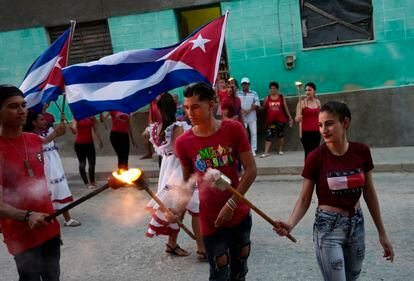
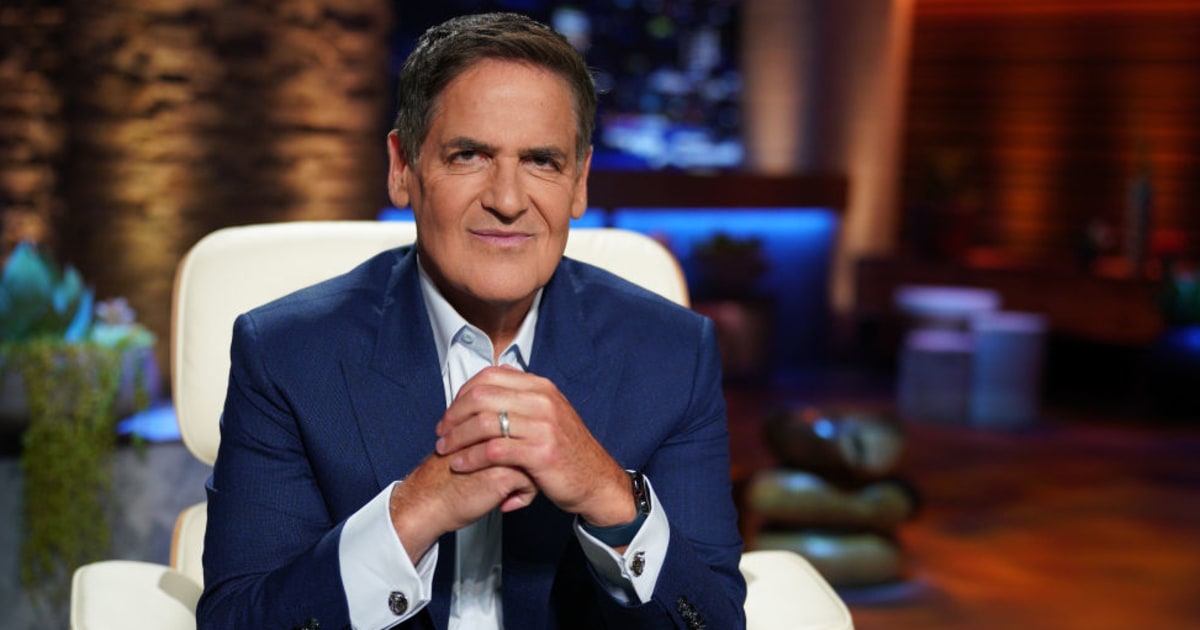
/cloudfront-eu-central-1.images.arcpublishing.com/prisa/NS3ZU25XBNH4BJLTJPBCRCLEXE.jpg)

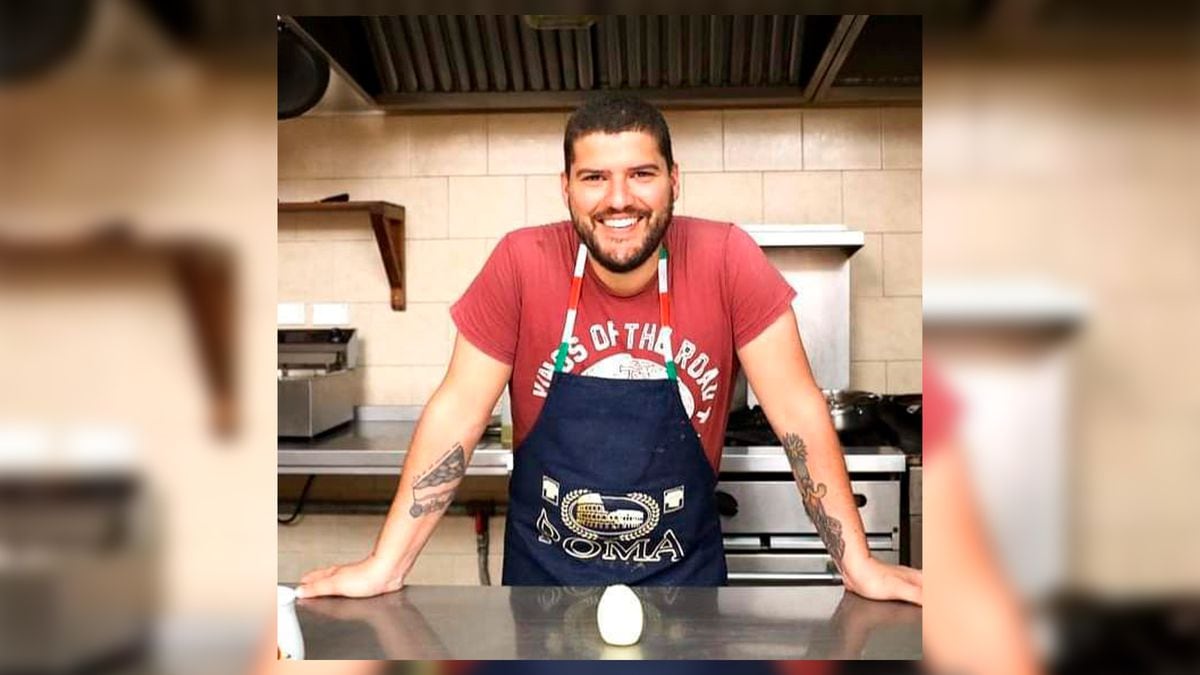
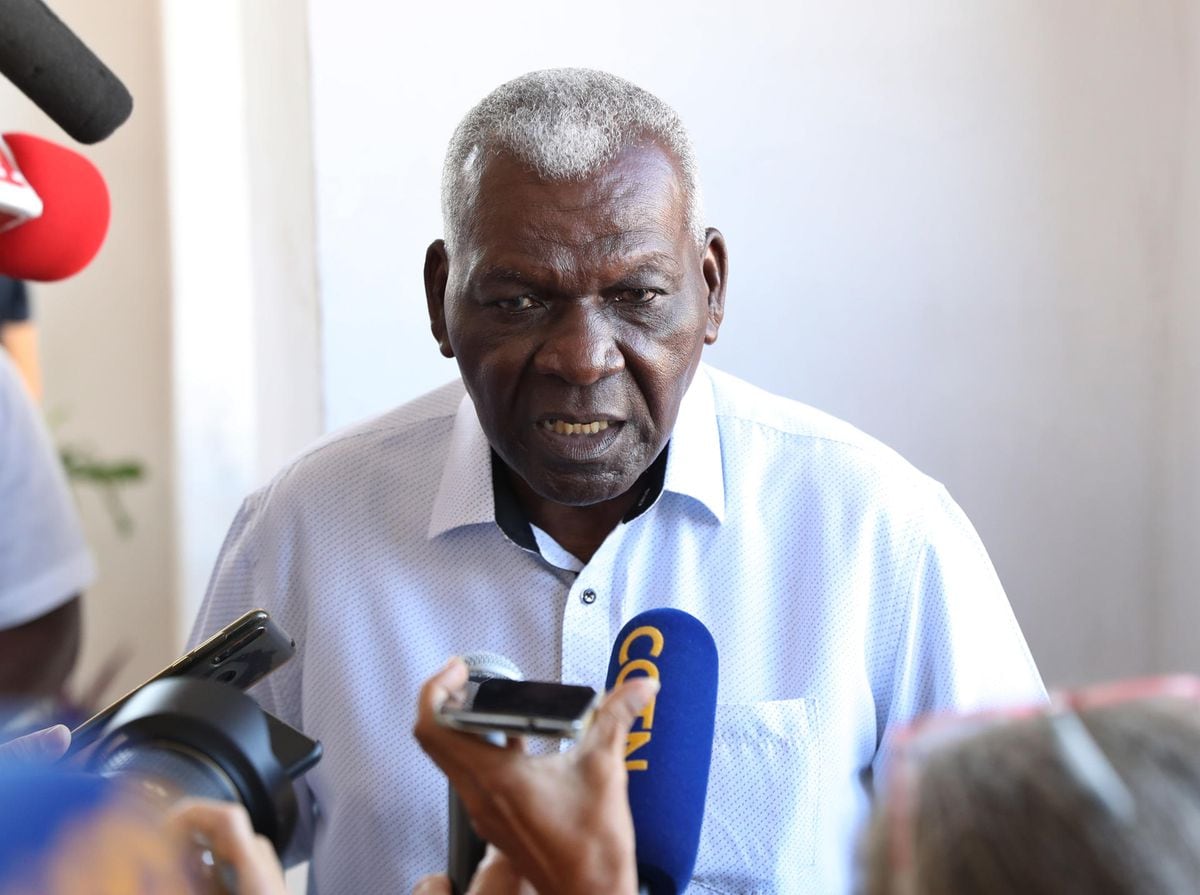
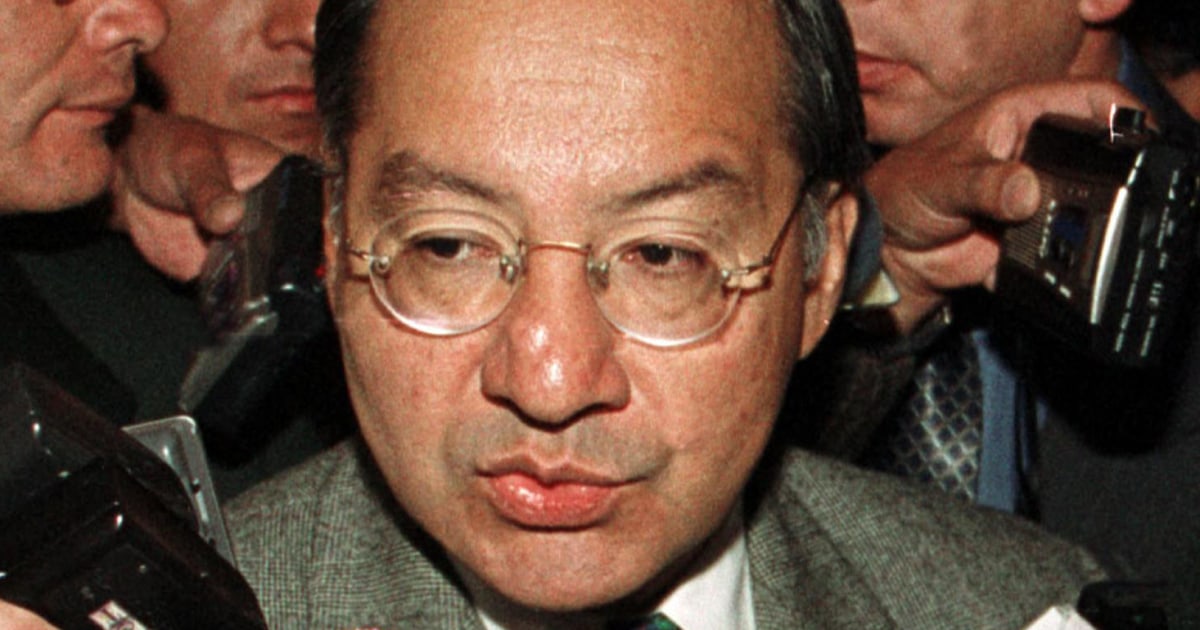
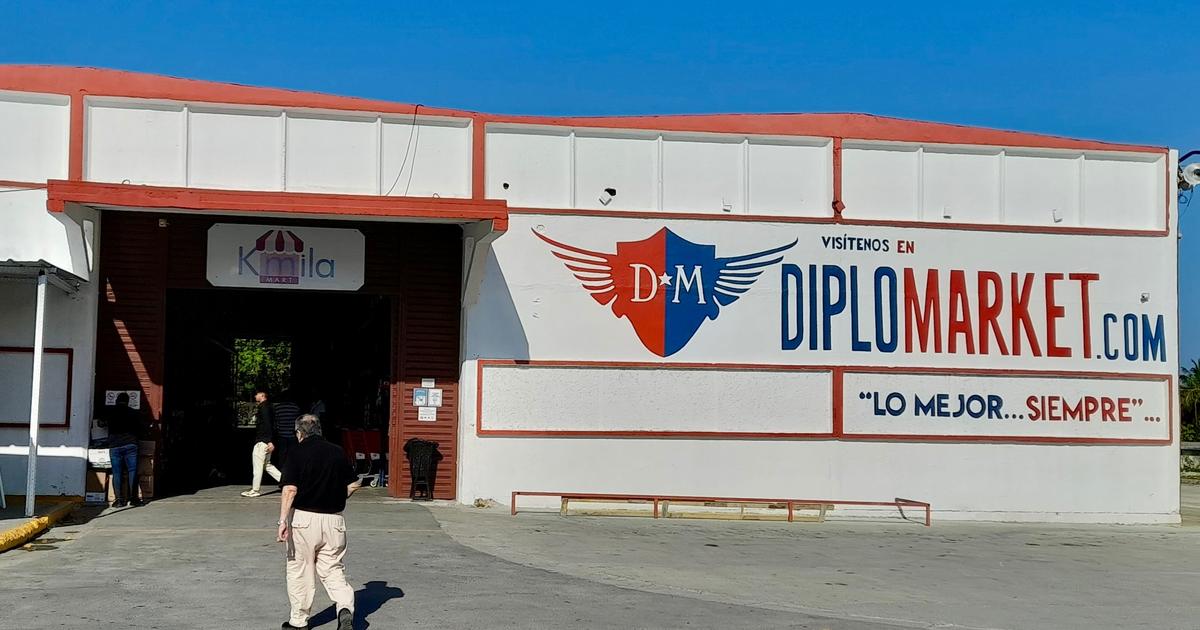
/cloudfront-eu-central-1.images.arcpublishing.com/prisa/MTSQ4Y67KD7UYSQ2QOVVGGYB5I.jpg)





